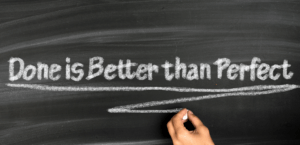Sleep Diet & Exercise lead to better organization!
What do diet, sleep and exercise have to do with getting organized? Everything.
Often, I hear from clients that they want to get organized or get a handle on their time in order that they may cook healthier meals, have time for exercise or manage their sleep better. It is true that managing your time and getting organized can help with these goals, but the opposite is also true. Getting a handle on sleep, diet and exercise can increase your likelihood of success and of that success being long lasting. But why? Read on for the evidence.
Sleep, diet and exercise are the ‘trifecta’ for healthy living. Without these key pieces you may see symptoms that look like other problems, such as trouble organizing, stress, difficulty managing your time, lack of energy or motivation. You may even manifest health problems such as high blood pressure, obesity, insomnia, depression or executive function disorders. But the good news is that impacting even one of these areas will improve functioning in the others and improve your ability to organize.
Sleep

More and more scientists, doctors and everyday folks are realizing that sleep and rest (such as meditation and downtime) are critical to good health. On top of that, continually getting too little sleep can have major consequences. Anything less than 8 hours of sleep can cause you to be less focused, be less happy, have reduced working memory, have reduced attention and have reduced performance. But what does all that have to do with organization? It has to do with how you perceive and process information. With too little sleep and rest, your body begins to rely on its primitive brain for decision making. You may feel as though you can’t think clearly, you overreact or become emotional. Barbara Hemphill says, “Clutter is unmade decisions.” If you want to make decisions and move the clutter out of your life, thinking clearly is going to be an important tool to have. Get enough sleep and it will seem logical to let the broken toaster go because you already have one that works. Getting enough sleep allows for your brain to use the more refined executive functions found in your frontal lobe to organize, categorize, solve puzzles and manage time. How much sleep do you need? The National Sleep Foundation recommends 7-9 hours for adults. Instead of thinking of sleep as something you have to get through in order to get to more important stuff, think of it as the catalyst for being able to accomplish more. Your day starts the moment you fall asleep, not the moment you wake up. Be sure you plan to sleep just like you plan to go to work. For more information on how to create good sleep habits check out this guide from Lifehacker.
If your bedroom is not yet organized enough to use for good sleep, try these simple swaps to move sleep to the top of your list:
- Even if the stuff just goes into a box in your bedroom, clear your bed off so you may sleep there.
- Plan for 8 hours of sleep, set an alarm 1 hour before you would like to go to bed to remind you to start winding down for sleep.
- Turn off the lights where you sleep and shut the blinds if possible.
I love sleep. My life has the tendency to fall apart when I’m awake, you know?
– Ernest Hemingway
Diet

What you eat is fuel for your body and your brain. Fuel. Think for a moment how you care for your car. Whenever it is running on empty, you fuel it by stopping at the nearest gas station. You may even have a fuel preference: regular or premium. You likely don’t put vegetable oil from your pantry in your car or top it off with water, because neither of these are proper fuel for your vehicle. You put the right fuel in your car to ensure that it runs at its best and continues doing so for as long as possible. Additionally, you keep fuel in your car because it won’t run at all without fuel. It just will not go. Your brain is the same way.
Likewise, the right fuel in your body can keep you running at your peak. You will have more energy for the goals you have set and you will think more clearly about decisions. Many studies have been done that correlate brain function with diet. Keeping fuel/food in your body throughout the day is important, too. But what is the ‘right’ fuel and how can you get it? There are lots of diets and recommendations out there at the moment, but what we know across all of these recommendations to be true is:
- Eat more vegetables. 50% or more of your diet should consist of fruits and vegetables such as salads, cut vegetables and fruits, frozen vegetables, soups, etc.
- Reduce or cut out processed food. Think of it as ‘dirty fuel’ with contaminates such as extra sugar, salt, fat, preservatives and additives.
- Eat less than 10% of your calories from dairy.
- Drink Water. Just like oil is lubricant for your car, water is lubricant for your body and performs all sorts of amazing functions. Juices and other beverages are OK, but they often fall into the ‘processed’ category.
If you are not organized enough to use your kitchen yet, use these simple swaps to move diet to the top of your list today.
- Purchase pre-cut vegetables to snack on or add as sides to meals. Rely on frozen veggies to make sure 2 out of the 4 items on your plate at any meal are vegetables.
- Plan a week or two of meals, or use a meal plan service like this one, or this alternative, to avoid reliance on last minute processed foods.
- Swap from cow’s milk to non-dairy milk such as almond, rice, coconut, etc.
- Keep a reusable water bottle with you. You can refill it almost anywhere and always have water.
Recommendation: “Eat food. Not too much. Mostly plants.”
– Michael Pollan, In Defense of Food
Exercise

I know what you are saying. I can hear you right now! I don’t have time to exercise. I can’t get to the gym. I don’t have the right clothes or gear or whatever it takes to get started exercising. Exercise is the last piece of the puzzle to aid in your organization. Without movement in your day, getting your heart pumping, releasing chemicals in your brain such as serotonin and dopamine, your body and your brain start to suffer. Obvious effects of too little exercise include obesity or lethargy, but the not so obvious effects are lack of motivation, difficulty thinking clearly, anxiety, depression, lack of energy.
Exercising helps you to burn the extra fuel in your body but it also strengthens bones, reduces your risk of cancer and heart disease, improves your mood, increases your ability to focus and allows you to live longer according to the Centers for Disease Control.
And if you know you are ADHD or even suspect you are, aside from medications, exercise is the number one thing you can do to help ease your ADHD symptoms and increase your brain functioning.
But don’t over-complicate it. The Mayo Clinic recommends 150 minutes of moderate exercise weekly. That is 30 minutes, five days a week or 21 minutes, 7 days a week. You do not have to join the gym or acquire fancy gear to get started on an exercise routine today. In fact, if exercise is not part of your daily routine, you should start slowly with small steps. For a truly inspiring story of how small steps lead to big change, check out One Small Step Can Change Your Life.
If you are not organized enough to moving yet, use these simple swaps to move exercise to the top of your list today.
- Put your exercise shoes next to your bed and think about the activity you would like to complete (just think and visualize, don’t actually do it!) before you go to sleep.
- Start by marching in place for just 1 minute before sitting down to get to work.
- Consider talking to friends and family who can join you either as a support system or to make your exercise social.
To keep the body in good health is a duty… otherwise we shall not be able to keep our mind strong and clear.
– Buddha
Once you have sleep, diet and exercise under your belt, you and your brain will be ready to tackle any projects or goals you have. You will be able to think clearly, move freely and have the energy to sort and organize.














Trackbacks/Pingbacks
[…] those without EF challenges diet, sleep and exercise are helpful but with EF Challenges diet, sleep and exercise are a deciding factor in […]
[…] decisions Organizing requires lots of decision making. Decision-making is harder for some than for others. What items do I keep, donate, trash? What […]
[…] Support your brain. For many of the issues that contribute to chronic disorganization, you can ‘raise the bar’ so to speak by focusing on getting enough sleep, water, exercise and fresh fruits & vegetables. While this will never solve the challenge entirely, it will give your brain what it needs to function at its best! […]